#suzanne clauser
Text
My Ranking of the “LITTLE WOMEN” Adaptations
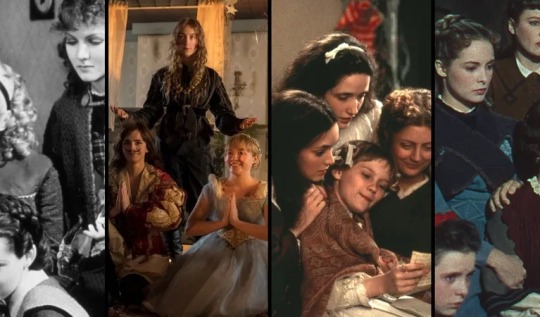
Below is my ranking of the movie and television adaptations of “LITTLE WOMEN”, Louisa May Alcott’s 1868-69 novel:
MY RANKING OF THE “LITTLE WOMEN” ADAPTATIONS

1. “Little Women” (BBC; 2017): adapted by Heidi Thomas and directed by Vanessa Caswill

2. “Little Women” (1994): directed by Gillian Armstrong and adapted by Robin Swicord
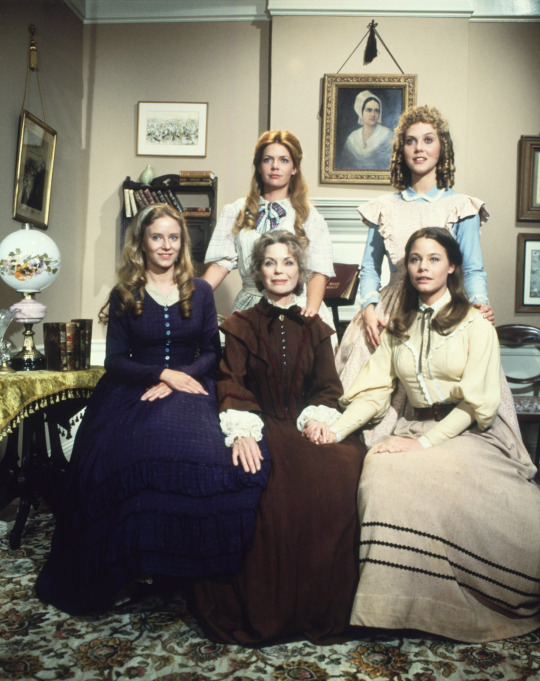
3. “Little Women” (NBC; 1978): directed by David Lowell Rich and adapted by Suzanne Clauser
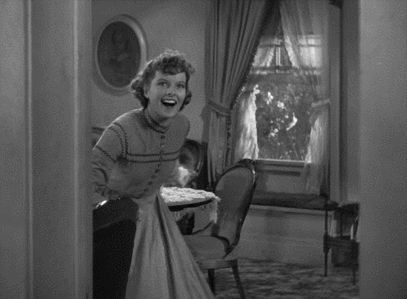
4a. “Little Women” (1933): directed by George Cukor and adapted by Victor Heerman and Sarah Y. Mason [tie]
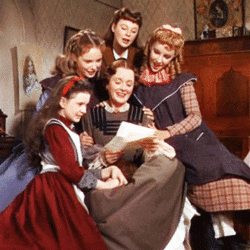
4b. “Little Women” (1949): directed by Mervyn LeRoy and adapted by Victor Heerman and Sarah Y. Mason [tie]
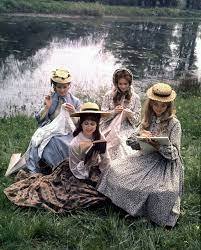
5. “Little Women” (BBC: 1970): directed by Paddy Russell and adapted by Denis Constanduros and Alistair Bell
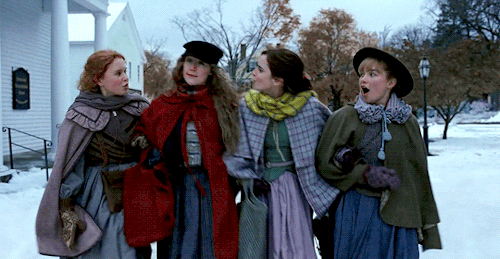
6. “Little Women” (2019): adapted and directed by Greta Gerwig
#little women#louisa may alcott#little women 1933#little women 1949#little women 1970#little women 1978#little women 1994#little women 2017#little women 2019#david lowell rich#suzanne clauser#dorothy maguire#susan dey#eve plumb#meredith baxter#ann dusenberry#greta gerwig#saoirse ronan#florence pugh#Emma Watson#eliza scalen#denis constandurous#alistair bell#jo rowbottom#janina faye#angela down#sarah craze#paddy russell#george cukor#victor heerman
51 notes
·
View notes
Photo
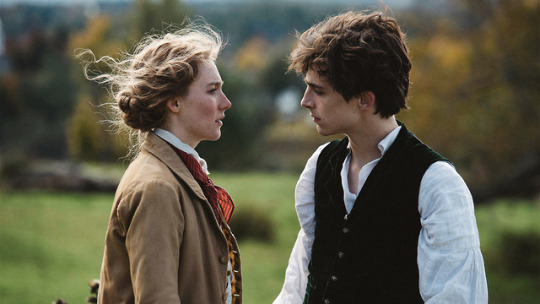
Ranking Little Women.
“This is a film not about a single woman’s quest for identity or independence, but about the infinite power of a woman’s community.”
Letterboxd is humming with Little Women Cinematic Universe energy, particularly since the trailer for Greta Gerwig’s new version, with its cast pulled straight from the Letterboxd Year in Review, dropped.
“I have a guttural five star type of feeling after the trailer,” writes Leia. “Bi culture is thirst-watching this for Timothée Chalamet and Florence Pugh,” Raph enthuses.
Yeah, we see you watching and re-watching all the previous film adaptations of Louisa May Alcott’s landmark 1868 novel that you can fix your eyeballs on. We’re not ones to doze by the fire; we like adventures. So let us take you on a romp through past Little Women screen adaptations, in which we rank the productions based on our community’s stantastic response to each.

From left: Milton, Daisy & Ruby.
Little Women (1917)
Directed by Alexander Butler
Though the March family lived in the town of Concord, Massachusetts, it was the British who got to the beloved American book first, with this silent film adaptation.
Starring Ruby Miller as Jo March and musical-comedy star Daisy Burrell as Amy March, the film is considered lost, so nobody on Letterboxd will ever be able to confirm how the prolific English actor Milton Rosmer stacked up as rich-boy-next-door Theodore ‘Laurie’ Laurence.
Letterboxd ranking: #7.
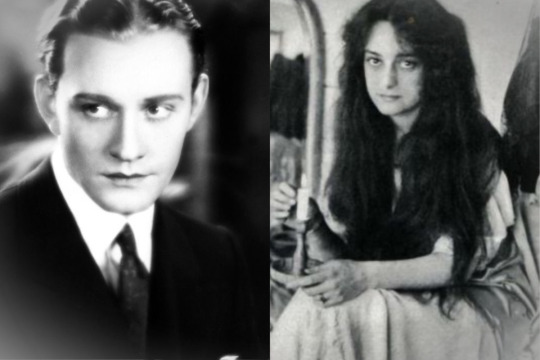
Conrad Nagel & Dorothy Bernard.
Little Women (1918)
Directed by Harley Knoles, screenplay by Anne Maxwell
Also considered lost is the first American adaptation, by the brilliantly named Harley Knoles, a British director who spent the 1910s working in the US. Matinee idol Conrad Nagel played Laurie.
Letterboxd ranking: #4. Jo March was played by silent film queen Dorothy Bernard, whose father hailed from New Zealand (as does Letterboxd), therefore this version ranks highly even though there are no Letterboxd ratings or reviews to confirm this fact. Instead, check out D.W. Griffiths’ dark, march-across-the-desert film The Female of the Species, in which “only Dorothy Bernard gives a believable performance” according to Michael.
(An aside: Here’s a list of unseen silent films that actually do exist, but that nobody on Letterboxd has yet seen, apparently.)
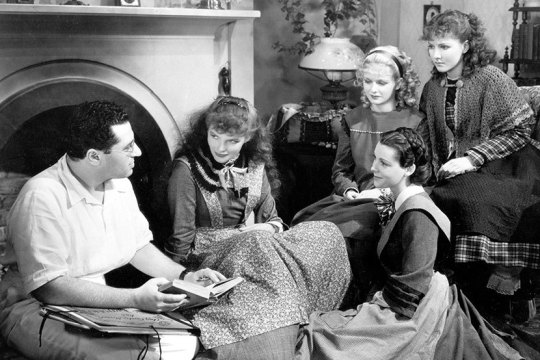
From left: George Cukor directs Katharine Hepburn, Joan Bennett, Frances Dee and Jean Parker in ‘Little Women’ (1933). / Photo courtesy MGM
Little Women (1933)
Directed by George Cukor, screenplay by Sarah Y. Mason and Victor Heerman
Now we’re getting to the meat & potatoes of Little Women standom. Not that it’s a competition, but Katherine Hepburn is the one Saoirse Ronan needs to beat. Hepburn set the screen standard for gutsy portrayals of Jo March, and appropriately so in this first version with sound because let’s be honest, when the world got to hear Jo March speak those lines aloud for the first time, Hepburn’s voice was the perfect choice.
The prolific Cukor was nominated for the best directing Oscar (he eventually won one in 1964 for My Fair Lady), but it was the screenwriters, married couple Mason and Heerman, who won the Academy Award for their script. (Hepburn also won that year, but not for playing Jo March.)
Letterboxd ranking: #3. “A true gem of depression-era cinema,” writes Taj. “Every single scene in the first half of this film is a pure delight.”
“I’d like to personally thank Katharine Hepburn for being absolutely perfect,” writes Skylar. Morgan concurs: “Hepburn plays Jo with a rough physicality, bold confidence, and a gentle sensibility, standing out in a rather unremarkable movie.”

June Allyson and Rossano Brazzi.
Little Women (1949)
Directed by Mervyn LeRoy, screenplay by Sally Benson, Victor Heerman, Sarah Y. Mason, and Andrew Solt
Why re-write a script that’s already perfect? Mervyn LeRoy’s 1949 Technicolor update lifted most of the screenplay and music from Cukor’s version, throwing in an on-trend acting line-up of June Allyson (Jo), Janet Leigh (Meg), Elizabeth Taylor (Amy) and Margaret O’Brien (Beth).
Never mind who played Laurie in this version (okay, okay, it was hunky Rat-Packing socialite Peter Lawford); the real tea here is the American film debut of Bologna-born Italian great Rossano (The Italian Job) Brazzi, as Professor Bhaer.
Letterboxd ranking: #2. “This is the best Little Women, fight me,” DylanDog declares. “I’m so impressed by the fact that they rewrote/restructured/padded out the 1933 screenplay, assembled a nearly pitch-perfect cast, and made such a fantastic Technicolor remake,” Dino reasons. “We actually see way more of the novel’s subversive gender politics play out here, and Jo’s motivations are much more palpable.”
“Although I also really like the 1933 version, the Hepburn film lacks the warmth I do find in the 1949 adaptation,” Annewithe writes. “I feel that this version conveys the true spirit of the book and is as cozy and warm and loving, and it’s in colour!”
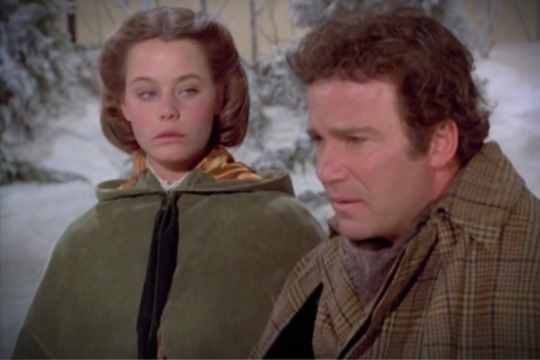
Susan Dey and William Shatner.
Little Women (1978)
Directed by David Lowell Rich, screenplay by Suzanne Clauser
Between 1949 and 1994, all we got was this seventies miniseries adaptation, which flies far under the radar of Letterboxd’s Little Women obsession with only two member reviews.
Susan Dey was a smart choice to play Jo March, given her Partridge Family profile at the time, while Meredith Baxter Birney, who played Meg, went onto huge sitcom fame as Michael J. Fox’s mom in Family Ties. The real curiosity factor here, writes LouReviews, is “the casting of one William Shatner as the Professor, and he’s rather good!”.
Letterboxd ranking: #6. “This story keeps moving me,” is all Sandra had to say, while LouReviews writes “not essential by any means, but if you like the novel, you'll want to see this”.

Winona Ryder and Christian Bale.
Little Women (1994)
Directed by Gillian Armstrong, screenplay by Robin Swicord
It only took 126 years from publication for a woman to get behind the camera of a Little Women film, despite Alcott’s masterpiece long being a prime example of (white privileged) female complexity in storytelling. (Although, it’s fair to note that women have been involved in the scriptwriting for every Little Women film adaptation that we know of.)
Released—as Gerwig’s 2019 update will be—at Christmas, Gillian Armstrong’s version was as star-studded as they come, with 90s it-girl Winona Ryder—fresh off Reality Bites—as Jo March, and Christian Bale as Laurie. Also: Kirsten Dunst, Samantha Mathis and Eric Stoltz, with Susan Sarandon as Marmee.
Letterboxd ranking: #1. Sydney writes: “It’s really tough dealing with the fact that this movie is probably never going to get the respect it deserves.” Well Sydney, we’re happy to make your day. This Little Women is currently the highest-rated on Letterboxd (except for Bale’s facial hair, which is not highly rated by anyone). Thomas Newman’s score is much beloved, and the film is, in Julia’s opinion, “the definitive adaptation!”.
On a recent re-watch, Lauren “was transported back in time to my childhood and for those two hours everything felt simple and safe.” Meanwhile Sally Jane Black, in a thoughtful piece, gets right to the heart of Little Women-love: “This is a film not about a single woman’s quest for identity or independence, but about the infinite power of a woman’s community.”
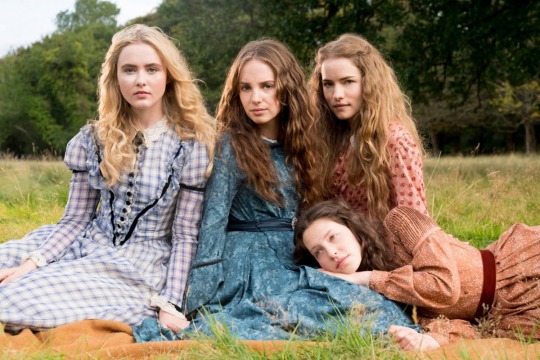
Little Women (2017)
Directed by Vanessa Caswill, screenplay by Heidi Thomas
Not strictly a film, but well worth a mention, this recent three-part BBC adaptation stars Thurman-Hawke offspring (and Once Upon a Time... in Hollywood flower child) Maya Hawke as Jo March. Emily Watson plays the March matriarch, and—Gerwig connection alert!—Kathryn Newton (Lady Bird’s Darlene) is Amy March.
Letterboxd ranking: #5. Alicia is a fan: “Winona will always be my Jo, but Emily Watson absolutely kills it as Marmee! Just love her FACE!!!! Her pain is your pain; her joy is your joy. Oyyy!”
Bethchestnut was slowly convinced: “A very handsome and loving production, even if there were a lot of things that bothered me about it. Doesn’t help that I watch the 90s version every year. Still made me cry twice.”

Little Women (2018)
Directed by Clare Niederpruem, script by Clare Niederpruem and Kristi Shimek
Released to mark the novel’s 150th anniversary of publication, this version wins points for casting Lea Thompson (Howard the Duck, Back to the Future) as Marmee, but loses points for the weird contemporary update, in which the March sisters inexplicably lose the messy complexity of their far more adventurous 19th-century selves.
Letterboxd ranking: #8. “Who decided casting Ryan from High School Musical was a good idea?” asks Sue.
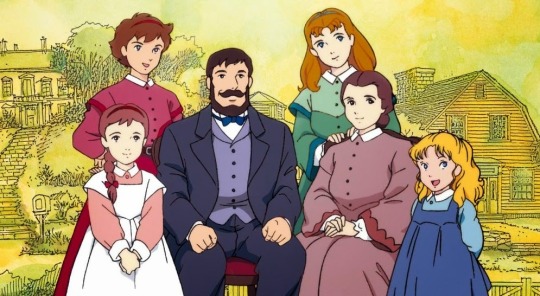
Also worth seeking out: two different Japanese anime adaptations, the 1981 series Little Women’s Four Sisters (若草の四姉妹), and the 1987 series, Tales of Little Women (愛の若草物語), which aired on HBO in 1988 and is notable for writing in a black character. Not worth a mention: this 1970 TV adaptation.
Greta Gerwig’s ‘Little Women’ opens in cinemas this December.
#little women#greta gerwig#timothee chalamet#saoirse ronan#florence pugh#meryl streep#winona ryder#katherine hepburn#letterboxd
12 notes
·
View notes
Text
"HEAVEN AND HELL: NORTH AND SOUTH BOOK III" (1994) - EPISODE THREE Commentary
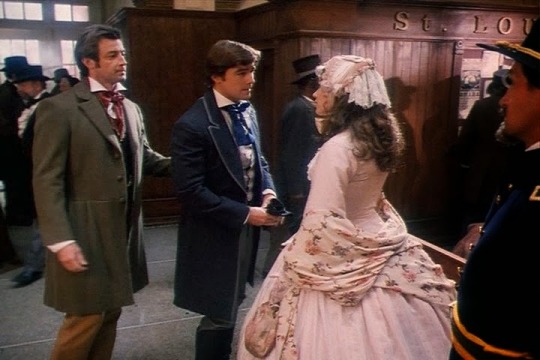
"HEAVEN AND HELL: NORTH AND SOUTH BOOK III" (1994) - EPISODE THREE Commentary
Thanks to Episode Three, "HEAVEN AND HELL: NORTH AND SOUTH BOOK III" ended on a solid note, thanks to John Jakes and Suzanne Clauser's screenplay. A good number of "NORTH AND SOUTH" fans have complained that the 1994 miniseries could have stretched into one or two more episodes. I have to disagree with that assessment. The 1987 novel was not as long as 1982's "North and South" or 1984's "Love and War".
Episode Three began Charles Main's confrontation with Scar and his discovery that the Cheyenne warrior was in no condition for any kind of duel. After mending Scar, Charles began to drink heavily in order to escape the failure of both his quest and his efforts to save the Cheyenne village from Captain Harry Venable and his troopers. George Hazard and Madeline Main's story blossomed into a romance that proved to be a lot more satisfying than what was depicted in Jakes' 1987 novel. After becoming sober, Charles learned about Gus' kidnapping from George and his friend, cavalry trooper Magic Magee. The trio set out into the Indian Territory to hunt for Bent and the kidnapped Gus. With George gone, Madeline was forced to contend with a double threat - a recently wealthy Ashton Main Fenway determined to take Mont Royal from her; and the local KKK and brother-in-law Cooper Main, determined to kill her and destroy her school for former slaves.
More so than the previous two episodes, Episode Three seemed to be pack with action. It featured Charles' ill-fated duel with Scar, the hunt for the Hazard and Main familes' nemesis, Elkhannah Bent and Charles' kidnapped son Gus, and the Klan's attack upon Mont Royal. And I thought that Larry Peerce handled these scenes rather well. Not only was I impressed by Peerce's direction of the Klan's attack, but also by Don E. FauntLeRoy's night time photography of the swamp where George chased a captured Madeline, Cooper and Klansman Gettys LaMotte. This episode also featured some effective dramatic scenes - especially George and Madeline's romance, Cooper's hostile confrontation with his wife Judith, and Charles' reconciliation with actress Willa Parker. But my favorite dramatic moment was Magic Magee's attempt to distract Bent at a whiskey ranch, while Charles and George tried to rescue Gus. That particular scene seemed like an excellent mixture of drama, humor and tension.
The only bad performance that turned me off in this episode came from Terri Garber's return to an exaggerated portrayal of a Southern belle. I found this ironic, considering that Lesley Anne Down managed to avoid this travesty, for once. However, Garber more than made up her acting faux pas in a scene in which she very convincingly portrayed Ashton's devastation upon her discovery of Mont Royal's wartime fate. James Read and Lesley-Anne Down were very effective in conveying George and Madeline's romance. Both Philip Casnoff and Steve Harris gave first-rate performances in the battle of wits between Bent and Magee. I could say the same about Robert Wagner and Cathy Lee Crosby in the scene featuring Cooper and Judith's quarrel. Kyle Chandler really shone in this episode, as he portrayed the gamut of Charles' emotional experiences from the drunken failed man to a determined father and finally, a man at peace with the woman he loved and with himself. Everyone else - including Rya Kihlstedt, Tom Noonan, Sharon Washington, Cliff DeYoung, Gary Grubbs, Gregory Zaragoza, Jonathan Frakes, Deborah Rush and Julius Tennon did some pretty solid work.
"HEAVEN AND HELL" is not perfect. Its production values were not as top notch as the first two miniseries from the 1980s. The miniseries included literary characters like Cooper Main without explaining their lack of appearances in "BOOK I" and "BOOK II". And it featured moments of hammy acting - especially by Lesley Anne Down, Terri Garber and Keith Szarabajka. On the other hand, this miniseries was more faithful to Jakes' third novel than "BOOK II" was to the second novel. Not only did "HEAVEN AND HELL" managed to feature excellent performances and outstanding action sequences, it featured what I consider are the two best scenes in the entire trilogy. And I still believe it was a lot better than most of the saga's fans viewed it.
#north and south book 3#north and south trilogy#james read#lesley anne down#kyle chandler#terri garber#tom noonan#cliff de young#gary grubbs#gregory zaragoza#steve harris#sharon washington#mariette hartley#rya kihlstedt#jonathan frakes#deborah rush#julius tennon#robert wagner#cathy lee crosby#philip casnoff#north and south saga#heaven and hell north and south book 3#john jakes
2 notes
·
View notes
Text
"LITTLE WOMEN" (1978) Review
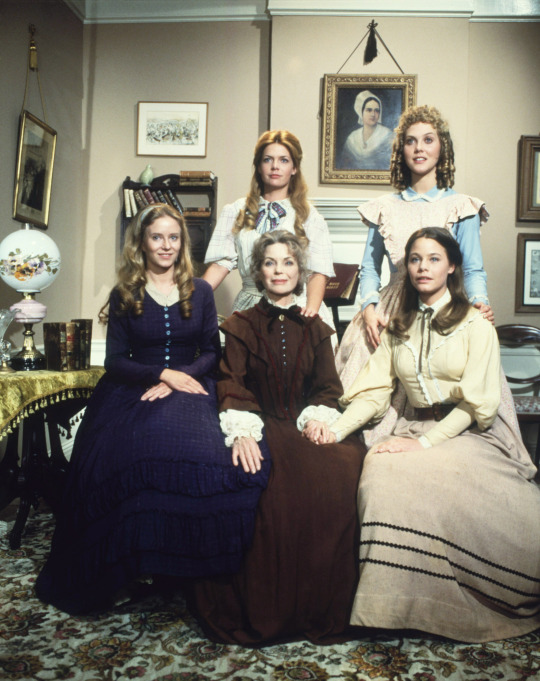
"LITTLE WOMEN" (1978) Review
There have been many adaptations of "Little Women", Louisa May Alcott's 1868 novel. And I have seen most, if not all of the live-action versions. But the first adaptation I have ever seen was NBC's adaptation that first aired back in 1978. If I might be honest, I ended up developing a rather high opinion of it.
Since my first viewing of 1978's "LITTLE WOMEN", I have seen other adaptations. And over the years, I had developed this belief that this television production from 1978 had not been good as I had originally believed. It took many years for me to give this two-part miniseries a second chance. "LITTLE WOMEN" told the story of Josephine (Jo) March and her three sisters during the 1860s - Meg, Beth and Amy. The two-part miniseries opened during the Christmas holidays in December 1861 and follow the sisters, their other family members and friends throughout the Civil War and the early post-war years. Because Jo is the main character, despite being the second sister, this adaptation of "Little Women" has the distinction of being the only version that allows her to serve as narrator.
After my recent re-watch, I could see why my opinion of "LITTLE WOMEN" had diminished over the years . . . at least from a superficial point-of-view. To be blunt, I was not that impressed by the miniseries' production values. The entire production was shot on the Universal Studios backlot and one could sometimes see the California hills in the background. Granted, I still believe set decorator Richard G. Goddard, art director Howard E. Johnson and cinematographer Joseph F. Biroc did the best they could to recreate 1860s Concord, Massachusetts, New York City and Italy. But I did have a problem with the miniseries' costume designs. On the surface, they seemed . . . serviceable for a television production set during the 1860s. But if I must be frank, the costumes also looked as if they had been taken from a costume warehouse for second-rate stage productions. Even worse, all or most of the actresses seemed to be wearing mid-to-late 1970s shoes underneath their mid-19th century dresses and gowns. I was shocked to discover that one of Hollywood's most iconic costume designer, Edith Head, had created the miniseries' costumes. So . . . what on earth happened? Head had created the costumes? "LITTLE WOMEN" was not even Head's first or last period drama. So, what happened?
Did I have any other problems with "LITTLE WOMEN"? Well . . . I did not care for leading actress Susan Dey's hairstyle in the second part of the miniseries. I realize her character, Jo March, had cut her hair to raise funds for her mother's journey to Washington D.C. But her hair never grew back. Never. Instead, it remained shorter than it originally was and styled into a bob. Why? And I had a problem with two particular performances. I will discuss one of them later. The other involved leading lady Susan Dey serving as the miniseries' narrator. Do not get me wrong. Dey is a fine actress and did the best she could. But I found her narration a bit clunky and unnecessary, thanks to the words provided to her by screenwriter Suzanne Clauser's teleplay.
Despite my quibbles, I found a lot to admire about "LITTLE WOMEN". I believe its status as a two-part miniseries, instead of a movie, screenwriter Suzanne Clauser had plenty of opportunities to fully adapt Alcott's novel with less shortcuts and more depth. I have always believed that Alcott's novel was basically a coming-of-age story for Jo March and her three sisters. To me, this made any adaptation of "LITTLE WOMEN" a major character study. And if there is one thing that the two-part miniseries did well was explore its characters and their situations with great depth.
This especially seemed to be the case of Jo's relationship with her neighbor and friend, Theodore "Laurie" Laurence, his personal relationship with his grandfather James Laurence, Amy's European trip and her romantic travails, and Meg's relationship with Laurie's tutor John Brooke. I was especially impressed by the production's handling of Jo's relationship with Professor Friedrich Bhaer. I found it very dynamic, thanks to Suzanne Clauser's screenplay, along with the performances involved. Some, but not all of the adaptations of Alcott's novel tend to forget - at times - that part of it spanned most of the U.S. Civil War. Fortunately, this adaptation never forgot. And as much as I seemed critical of the miniseries' narration, it also reminded television audiences that . . . yes, part of "LITTLE WOMEN" was partially set during the Civil War.
Speaking of performances, "LITTLE WOMEN" had the blessed luck to feature a first-rate cast. I may not have been impressed by the narration provided by Susan Dey (for which I blame another), I was more than impressed by her portrayal of the story's leading character, Josephine "Jo" March. I though she did a superb job in capturing Jo's mercurial personality and obsession with her developing profession as a writer. Meredith Baxter gave an excellent performance as the oldest March sister, Margaret "Meg" March. She conveyed Meg's vanity and obsession with the family's social status and stubborn refusal to give up her love for John Brooke. My only issue is that I believe the actress may have been a bit too old portraying a character that aged from 16 to her early 20s. Eve Plumb portrayed the shy, yet musical Elizabeth "Beth" March. I thought she did an excellent job of combining Beth's emotional, yet retiring nature and in the end, gave a very poignant performance. Ann Dusenberry was roughly 24 to 25 years old when she portrayed the youngest March sibling, Amy. Before my recent re-watch of "LITTLE WOMEN", I had assumed she was too old to portray a younger Amy. But upon my viewing, I realized that she actually managed to give a rather convincing and skillful performance of Amy during the war years (between ages 12 and 16) without to resorting to exaggerated histrionics. And I also admired her portrayal of the older Amy who found herself drawn between two men during her European trip.
I cannot deny that most of the actors who have portrayed Theodore "Laurie"/"Teddy" Laurence over the years gave some pretty damn good performances. But I believe that Richard Gilliland's portrayal of the emotional and moody "Laurie" has to be one of the two best I have ever seen, hands down. His only equal - at least in my eyes - is Jonah Hauer King's performance in the 2017 BBC miniseries. But if I had to choose my favorite portrayal of Laurie's stern, yet warm grandfather, James Laurence, it would be the one given by Hollywood icon Robert Young in this miniseries. May I be frank? I believe both actors provided some of the production's best dramatic moments in their depiction of the developing relationship between grandson and grandfather.
Dorothy McGuire gave a fine performance as Mrs. March aka "Marmie", the four sisters' mother. Thanks to the actress' performance, her Mrs. March seemed more like a well-rounded human being, instead of an archetype. Greer Garson was in fine form as the March family's tart-tongued, yet wealthy matriarch, Aunt Josephine March. William Shatner was excellent as the German-born professor who befriended Jo in New York City, Professor Friedrich Bhaer. Although I found his German accent a bit questionable, I cannot deny that he managed to provide a great deal of energy and complexity to Friedrich's relationship with Jo. Cliff Potts gave a solid performance as Meg's love interest and Laurie's tutor, John Brooke. I can say the same about Virginia Gregg, who portrayed the family's housekeeper, Hannah Mullet. I wish I could provide a better opinion of William Schallert's portrayal of the sisters' father, John March, but his presence in the miniseries seemed very limited, aside from one scene that featured the birth of Meg's children. One performance really failed to impress me and it came from John de Lancie, who portrayed Laurie's English-born classmate from Harvard and Amy's suitor, Frank Vaughan (Fred in the novel). Quite frankly, I found his performance a bit off. Knowing de Lancie for the first-rate actor he truly is, I suspect that between Alcott and screenwriter Suzanne Clauser's writing, the character ended up as a flat, one-note plot device - a situation that not even de Lancie could rise above.
Yes, I had some issues with "LITTLE WOMEN". I found some of the production values questionable, especially some of Edith Head's costumes, the hairstyles and one particular character. But overall, I believe it proved to be a first-rate adaptation of Louisa May Alcott's novel. If I must be frank, thanks to David Lowell Rich's direction, Suzanne Clauser's screenplay and a superb cast led by Susan Dey, I consider the 1978 adaptation of Alcott's novel to be among the three best I have ever seen.
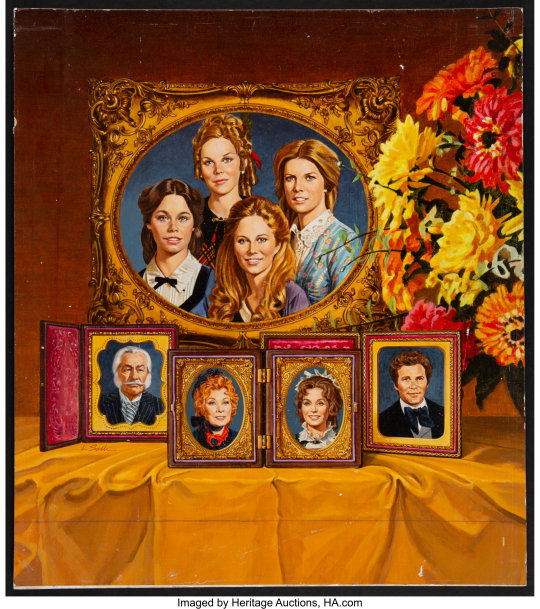
#little women#little women 1978#louisa may alcott#susan dey#jo march#meredith baxter#meg march#eve plumb#beth march#ann dusenberry#amy march#richard gilliland#theodore laurie laurence#dorothy mcguire#marmee march#robert young#greer garson#william shatner#john de lancie#david lowell rich#virginia gregg#cliff potts#u.s. civil war#gilded age#william schallert#joyce bulifant#carlene watkins#period drama#period dramas#costume dramas
11 notes
·
View notes